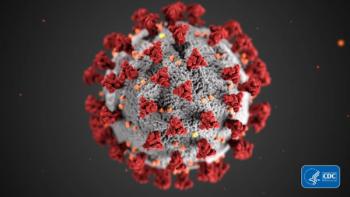
The researchers created a model that simulated what would happen when health systems and providers began working together in Medicare accountable care organizations (ACOs) in arrangements that did not extend to outright mergers or acquisitions.

The researchers created a model that simulated what would happen when health systems and providers began working together in Medicare accountable care organizations (ACOs) in arrangements that did not extend to outright mergers or acquisitions.

Rajat Bannerji, MD, PhD, Chief, Section of Hematologic Malignancies at Rutgers Cancer Institute of New Jersey/RWJBarnabas Health, speaks on the efficacy and safety findings of the CAPTIVATE study examining the fixed-duration regimen of ibutinib and venetoclax combination therapy in CLL.

Results of a nationwide study show earlier onset of type 1 diabetes (T1D) is associated with worse glycemic outcomes and presence of albuminuria.

Adherence to antiretroviral therapy (ART) can be improved by health care providers reinforcing ART dispensing models and creating ART models that promote situational stability, according to a new study.

Almost half of US migraineurs hesitate to seek out care for their condition, according to research presented at the American Headache Society's 63rd Annual Scientific Meeting.

The FDA approves a new drug for Alzheimer disease; COVID-19–related hospitalization rates are on the rise among adolescents; efforts to address racism, discrimination, and implicit bias in health care; the United States will send 1 million Johnson & Johnson COVID-19 vaccines to Mexico cities along the border and resorts.

Shalini Paruthi, MD, medical codirector, St. Luke’s Hospital Sleep Medicine and Research Center, and cochair of SLEEP 2021, discusses the sessions and discussions she is looking forward to at this year's meeting.

Farrah Kheradmand, MD, elaborates on the effects of marijuana legalization and increased recreational use on research into electronic cigarettes.

Camille Hertzka, vice president and head of Oncology, US Medical, AstraZeneca, discussed updated findings of the PACIFIC trial that indicated a third of patients with unresectable non-small cell lung cancer are stable at 5 years.

The study's lead author said researchers have searched for a generation for an effective therapy to give to high-risk patients with renal cell carcinoma after initial surgery for the tumor.

Antoine Italiano, MD, PhD, head of Early Phase Trials and Sarcoma Units at Institut Bergonié, Bordeaux, France, addresses findings of an extended follow-up of larotrectinib in patients with TRK fusion cancer that indicated prolonged progression-free survival in those undergoing the NTRK inhibitor.

The founder of the Renal Support Network discusses why patients with chronic kidney disease want Congress to change Medicare policy to allow payment for oral treatments for anemia caused by iron deficiency.

Kirk Shepard, MD, chief medical officer, senior vice president, and head of Global Medical Affairs, Eisai, discusses findings of a study showcasing similar health-related quality of life (HRQOL) scores between lenvatinib/pembrolizumab vs chemotherapy in patients with advanced endometrial carcinoma.

Christopher Arendt, PhD, head, Oncology Therapeutic Area Unit, Takeda, speaks on efficacy and safety findings of the OPTIC study examining dose optimization of ponatinib in patients with chronic-phase chronic myeloid leukemia (CP-CML) resistant to second-generation tyrosine kinase inhibitor therapy.

Highlighting the latest ophthalmology-related news reported across MJH Life Sciences™.

Results of a clinical trial indicate peer-delivered interventions can help patients with rare diseases achieve disease acceptance.

An overview of the latest news in Parkinson disease reported across MJH Life Sciences™.

Here are some of the latest developments in multiple sclerosis (MS) from our sister publication, NeurologyLive®.

Variances between sex and age were found among patients with chronic obstructive pulmonary disease (COPD) with a viral infection who visited the emergency department (ED) visit or were hospitalized, highlighting the role that these factors play.

Barriers to authorship and adequate representation of women in heart failure–focused clinical trials need to be addressed, noted Mariana Garcia, MD, cardiology fellow in the Academic Clinical Investigator Pathway at Emory University and member of T32, Multidisciplinary Research Training to Reduce Inequalities in Cardiovascular Health (METRIC).

Results of an observational study indicate low estradiol levels could worsen vestibular migraine in postmenopausal women.

The studies used population-level data from a county in Minnesota that has served as a national laboratory for health research since the 1960s.

Robert Iannone, MD, MSCE, executive vice president of research and development for Jazz Pharmaceuticals, addresses findings of an abstract presented at ASCO 2021 which showed preliminary efficacy of lurbinectedin in combination with irinotecan in patients with advanced endometrial carcinoma.

Researchers discussed novel biomarkers—both established and not fully validated—being assessed in the time of targeted therapies for chronic lymphocytic leukemia (CLL).

Physical frailty affects a large proportion of patients with chronic obstructive pulmonary disease (COPD) and chronic respiratory failure and current tools for detection may be inadequate, according to a recent report.

The FDA said it is the first approved drug for chronic weight management in adults with general obesity or overweight since 2014.

Patients with glaucoma who were tested under a quantum dot LED were able to better distinguish differences in color, indicating that the quality of light systems may have an impact on color discrimination.

Davey Daniel, MD, hematology/medical oncology specialist, Tennessee Oncology, discusses findings of an abstract presented at ASCO 2021 showing a lower total cost of care paid by Medicare for episodes of care for patients in the Oncology Care Model (OCM) enrolled in clinical trials vs those receiving routine care.

ASCO officials characterized the results as practice changing and said they highlighted the need for genetic testing in patients who receive a diagnosis of high-risk breast cancer.

Results of a study conducted in California suggest some adolescents with type 1 diabetes (T1D) improved their glycemic control during the COVID-19 lockdown.

259 Prospect Plains Rd, Bldg H
Cranbury, NJ 08512
© 2025 MJH Life Sciences®
All rights reserved.
